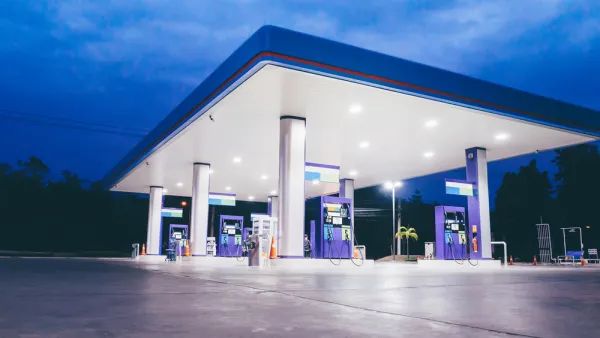Tax attorney Kelly Phillips Erb pens a colorful narrative upon the 81st birthday of the federal gas tax, showing the interesting history of this now controversial tax. It began on June 6, 1932 to close general budget gaps, not build roads.
The initial one-cent gas tax under President Herbert Hoover (R) was the equivalent of a 36-cent gas tax today - almost double today's 18.4-cent excise tax, in its relationship to the average price of gasoline. Forbes contributor and attorney Erb writes that the federal government arrived late to taxing gasoline: "all of the states at the time had their own gas tax" by then; Oregon being the first in 1919.
The Federal-Aid Highway Act of 1956 under President Dwight Eisenhower (R) that would fund the building of the Interstate Highway System gave birth to the Highway Trust Fund - no longer could gas tax revenues be used for anything but road and bridge building and maintenance.
President Ronald Reagan (R) is credited with making two significant changes in 1982:
- Signing "into law the largest increase in the gas tax in its fifty year history: a healthy five cent [125%] increase, bringing the tax to nine cents per gallon."
- The Surface Transportation Assistance Act of 1982...created two separate accounts in the Highway Trust Fund. The Highway Account would receive 8 cents of the revenue while the new Mass Transit Account would receive 1 cent of the gas tax. [FHWA]
President George H.W. Bush (R) added another nickel to the gas tax in 1990, now totaling 14-cents, with "half the increase earmarked for deficit reduction".
Within a ten year span, the gas tax had increased, under Presidents Reagan and Bush by ten cents per gallon, a 350% increase.
The last increase, 4.3-cents occurred under President Bill Clinton (D), entirely targeted toward deficit reduction, was redirected to the Highway Trust Fund three years later.
From a political perspective, the gas tax has been overwhelmingly favored by Republican presidents - Clinton was the only Democrat among five presidents to sign significant increases. In addition, Reagan opened up the Highway Trust Fund to public transit spending and Hoover and Bush allowed it to be used for deficit reduction.
Erb writes, "Raising taxes is political suicide (but) eliminating a tax that supports infrastructure projects is just as dangerous. My guess is that this is one birthday that we’ll continue to see year after year."
FULL STORY: Federal Gas Tax Passes Another Milestone: What Is The Future?

Analysis: Cybertruck Fatality Rate Far Exceeds That of Ford Pinto
The Tesla Cybertruck was recalled seven times last year.

National Parks Layoffs Will Cause Communities to Lose Billions
Thousands of essential park workers were laid off this week, just before the busy spring break season.

Retro-silient?: America’s First “Eco-burb,” The Woodlands Turns 50
A master-planned community north of Houston offers lessons on green infrastructure and resilient design, but falls short of its founder’s lofty affordability and walkability goals.

Test News Post 1
This is a summary

Analysis: Cybertruck Fatality Rate Far Exceeds That of Ford Pinto
The Tesla Cybertruck was recalled seven times last year.

Test News Headline 46
Test for the image on the front page.
Urban Design for Planners 1: Software Tools
This six-course series explores essential urban design concepts using open source software and equips planners with the tools they need to participate fully in the urban design process.
Planning for Universal Design
Learn the tools for implementing Universal Design in planning regulations.
EMC Planning Group, Inc.
Planetizen
Planetizen
Mpact (formerly Rail~Volution)
Great Falls Development Authority, Inc.
HUDs Office of Policy Development and Research
NYU Wagner Graduate School of Public Service



























